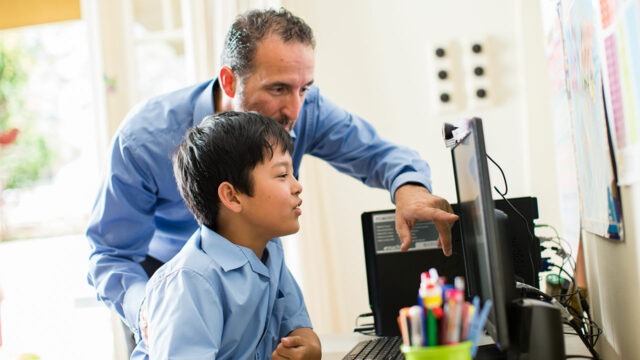
The implementation of teleworking and distance education in the face of COVID-19, brought with it several challenges to the country, including guaranteeing online safety for children and adolescents.
Precisely, in order to provide this security, the Paniamor Foundation executes the project: “Costa Rica says no to online sexual exploitation and abuse of children and adolescents” (CR-NEXST), funded by the End Violence Parthership Fund.
This plan includes several projects to improve the country’s capacity to prevent and respond to online sexual abuse and exploitation. For example, it includes the “Modelo e-Mentores” Platform, which aims to support families to make safe and responsible use of technologies.
So far, the model has been adopted to work with families from the Ministry of Sciences, Technology and Telecommunications (MICITT), Police Force, National Institute for Women (INAMU), Costa Rican Social Security Fund (CCSS), the Ministry of Education Public (MEP), among other institutions.
As part of the initiative, telecommunications companies such as Claro, Tigo, Coopeguanacaste and kölbi, as well as the hardware manufacturer IBM and the Quirós Tanzi Foundation, committed to guaranteeing online security. To do this, they train their staff with the platform, so that they transfer the acquired knowledge to their families.
CR-NEXST intends to strengthen the National Commission for Online Security
Likewise, in a joint effort between UNICEF and the National Children’s Trust (PANI), a mobile application was created to respond immediately to cases of sexual abuse and notify the National Emergency Service 911.
The initiative also includes an action plan to strengthen the National Commission for Online Security (CNSL), which includes the work of state institutions, civil organizations and private companies.
“We cannot allow the abuse and violence that we combat in the physical world to invade the virtual world in which our young population is building an important part of their education, entertainment and social interaction. For this, it is also important to support mothers and fathers to have enough information on the risks of using social networks,” highlighted the Minister of Science, Technology and Telecommunications, Paola Vega.
The Ministry that Vega represents, estimates that the COVID-19 Pandemic brought other challenges such as: reducing the digital divide and ensuring the right to connection, information and education, all linked to the Internet.

